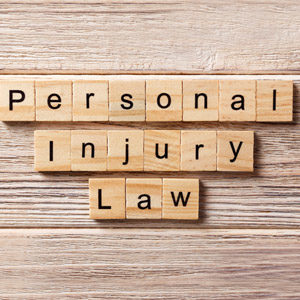As a driver or car owner in Marietta, Georgia, it’s crucial to be up-to-date with the ever-evolving traffic laws and regulations. The reason being, legal changes can significantly impact how car accident cases are handled, ranging from liability determinations to the procedures of claiming compensation. Therefore, staying informed can make all the difference if you ever find yourself in such unfortunate circumstances. In this blog post, we explore the recent legislative updates that are particularly relevant to Marietta drivers and discuss the potential effects these changes may have on car accident cases.

Driving on the bustling roads of Marietta and greater Georgia comes with the responsibility of adhering to the state’s traffic laws. These laws are designed to keep drivers, passengers, and pedestrians safe. However, without keeping pace with legal updates, you may find yourself inadvertently on the wrong side of the law or at a disadvantage if an accident occurs.
In recent times, there have been significant changes in the legislation related to car accidents and traffic regulations in Georgia. These changes can alter how accident claims are processed, how liability is determined, and even the amount of compensation you may be entitled to. Understanding these updates is critical for any Marietta driver, whether you spend your days commuting, working as a commercial driver, or even occasionally venturing out onto the local roads.
It’s crucial to note while I’m providing this hypothetical section, in reality, specific legal updates including case law and statutes should be verified through official state legislative
documentation or verified legal publications for the most accurate and up-to-date information.
Georgia has witnessed pivotal legislative alterations aimed at refining and streamlining the handling of car accidents and personal injury claims. These adjustments are not just procedural but also substantively alter the landscape of personal injury law within the state, presenting both challenges and opportunities for those navigating the aftermath of a car accident. Below is an outline of the recent amendments and their implications for drivers and accident victims across Georgia.
The recent legislative changes in Georgia have introduced a series of adjustments with far-reaching implications for car accident liability, compensation, and insurance claims. These amendments are critical for drivers, accident victims, and legal professionals to understand thoroughly, as they fundamentally alter the landscape of personal injury litigation and insurance negotiations within the state. Below is an in-depth examination of these impacts.
The modifications to the comparative negligence system, now reflected in O.C.G.A. § 51-12-33, present a significant shift in how fault is determined in car accidents. The essence of comparative negligence allows for the fault to be distributed among parties based on their degree of responsibility in the accident. With the recent legislative updates, Georgia subtly shifts towards a more detailed scrutinizing process, where even minor contributory actions can influence fault distribution. This means that if a plaintiff is found even partially responsible, their potential compensation might be proportionally reduced. This nuanced approach emphasizes the importance of thorough investigation and evidence collection at accident scenes, as minor details could significantly impact the outcome.
The legislative amendments have introduced more structured and stringent rules around compensation for accident victims. Specifically, adjustments to statutes governing insurance payouts and personal injury awards demand a closer examination of each claim based on the updated comparative negligence framework. While these changes do not directly cap compensation, they do necessitate a clearer demonstration of fault and damages. The implication for accident victims is that obtaining full compensation now requires a more meticulous preparation of evidence, including medical records, eyewitness statements, and documentation of financial losses.
Navigating insurance claims post-accident has become increasingly complex with the recent legal updates. The streamline of the claims process, as indicated in the amendments to O.C.G.A. § 33-6-3, pushes for a quicker resolution of claims. However, the tightened evidence requirements mean that claimants must be more diligent in compiling comprehensive claims packages. Insurance companies are likely to scrutinize claims more rigorously in alignment with the new legislative standards, examining the nuances of fault determination and the adequacy of documentation proving damages.
This evolution in the legal framework mandates a proactive approach for all parties involved in a car accident claim. For accident victims, it underscores the importance of gathering exhaustive evidence from the outset and potentially seeking legal counsel to navigate the complexities of the revised statutes. For insurers, the changes necessitate a recalibration of claims assessment protocols, ensuring a fair but stringent evaluation of each claim based on the updated legal landscape.
The modifications in fault determination and compensation rules also indirectly encourage safer driving practices and more prudent handling of accident aftermaths. They highlight the legal and financial repercussions of negligence or partial fault in accidents, aiming to foster a more responsible driving culture.
In conclusion, the legislative changes in Georgia affecting car accident liability and claims herald a new era of personal injury law with a heightened emphasis on precise fault attribution and evidence submission. Both accident victims and insurance companies must adapt to these changes, guiding their actions and strategies with an informed perspective on the new legal requirements.
Marietta, a significant city within the Atlanta metropolitan area, sees considerable daily traffic, making road safety and vehicle accident regulations acutely pertinent to its residents. With the statewide legal changes enacted, drivers in Marietta must navigate these updated norms, from how they interact with their mobile devices on the road to the manner in which they manage the unfortunate event of an accident.
For drivers in Marietta, the Hands-Free Georgia Act‘s strengthening means that any use of a mobile device that could distract from driving might be grounds for citation. Given the city’s busy roads and the commonality of stop-and-go traffic, local drivers must be incredibly vigilant about not engaging with electronic devices to avoid penalties and contribute to safer roadways.
The reforms surrounding fault determination are particularly significant for Marietta, an area with a high incidence of commuter traffic congestion and, consequently, a higher risk of motor vehicle accidents. Drivers must now consider that even seemingly innocuous actions contributing to an accident could lead to a reduction in compensation due to the state’s modified comparative negligence rules.
In the local courts of Marietta, which fall under the Cobb County Judicial Circuit, these legal updates mean that proceedings for car accident cases might become more stringent. Given the refined comparative negligence approach, lawyers and their clients will likely face a more meticulous analysis of evidence and fault attribution in front of a judge or during settlement negotiations. The increased pressure for thorough evidence could result in more detailed pre-trial discovery processes and potentially longer trial preparation times.
Furthermore, with the introduction of an expedited insurance claim process, it’s likely that the courts may experience a decrease in the number of minor suits brought before them, as more compensation disputes may be handled directly through insurance companies.

These legislative changes have already started to show their impact through the experiences of past clients in Marietta. The examples below shed light on the real-world implications for drivers navigating the updated legal framework.
Consider the case of a client, Karen, a resident of Marietta who experienced a rear-end collision at a stoplight. Under the previous legal framework, the driver who collided with her vehicle would likely have been deemed entirely at fault. However, during the course of legal proceedings, it was revealed that Karen was using her smartphone at the time of the accident. Despite not being the initiating party of the collision, under the updated comparative negligence rules, Karen was found to be partially at fault. This division of fault led to a significant reduction in her compensation, highlighting the stringent measures now in place for determining fault and awarding damages.
Another client, Tom, faced challenges with his insurance claim after being hit by a motorist who ignored a red light. Tom had always been diligent about keeping records but found the heightened requirement for detailed and comprehensive proof of damages to be an eye-opener. Under the new legal amendments, he needed to furnish an exhaustive list of documentation, including medical bills, repair invoices, and proof of lost wages, to support his insurance claim. Initially, Tom’s claim faced resistance due to perceived inadequacies in his initial documentation. However, with guidance, he managed to compile a sufficiently detailed claim that met the new legislative standards, ultimately securing the reimbursement he was entitled to. This case serves as a testament to the critical importance of meticulous record-keeping for insurance claims in the current legal environment.
Both scenarios involving past clients from Marietta underscore the profound implications of the recent legislative changes on the daily lives of drivers. Karen’s and Tom’s experiences emphasize the heightened need for vigilance, both at the scene of an accident and in the subsequent legal and insurance claim processes. For drivers in Marietta and across Georgia, understanding these legal shifts is crucial for protecting oneself legally and financially in the event of an automobile accident.
The recent statewide legal changes have introduced a number of adjustments that drivers in Marietta need to make in order to ensure compliance, secure adequate insurance coverage, and take preventative measures to safeguard themselves and others on the road.
To comply with the new legal standards, Marietta drivers should:
For insurance considerations:

To promote safer driving:
By taking these steps, drivers in Marietta can align themselves with the new legal requirements, potentially avoid legal complications, and, most importantly, contribute to a safer driving environment for everyone.
Navigating the complexities of recent legal changes can be daunting, especially in the aftermath of a car wreck when you are focusing on recovery and ensuring your rights are protected. It’s during these times that the guidance of a seasoned car wreck attorney becomes invaluable.
The landscape of vehicle law and insurance claims is constantly evolving, making it challenging for individuals to stay informed. A knowledgeable attorney not only understands these changes but knows how to leverage this knowledge to your benefit. They can adeptly navigate the legal system, ensuring that your case is handled with the attention to detail it deserves.
Consulting with a car wreck attorney is not just about having representation in court. It’s about having an advocate who can offer comprehensive support during claim negotiations, manage the intricate documentation required, and provide clarity and guidance through the complexities of your case. Our attorneys at Cohen & Sinowski, P.C., understand the emotional and physical toll a car accident can have on an individual and their family. We are committed to providing you with the compassionate support and professional advice you need during this challenging time.
When seeking legal assistance, finding an attorney with up-to-date knowledge of the new laws and their implications is essential. Here are some aspects to consider:
At Cohen & Sinowski, P.C., our team embodies these qualities, offering personalized and empathetic legal assistance tailored to your specific needs. We understand the significance of your case and are here to guide you through every step of the legal process with professionalism and compassion.
Seeking the right legal help can make all the difference in your case. Contact us today to see how we can assist you in navigating the recent legal changes and fight for the justice and compensation you deserve.
Throughout this discussion, we’ve navigated the complexities surrounding the recent legal changes and their implications for drivers and car accident cases in Marietta. We emphasized the importance of compliance with these new regulations, the necessity of reassessing your insurance coverage in light of these changes, and the protective measures that can help ensure the safety of all road users. Additionally, we’ve highlighted the indispensable role of legal assistance during such tumultuous times. At Cohen & Sinowski, P.C., we understand the daunting challenges these changes may pose and the myriad of questions you might have.
Staying well-informed and prepared is more crucial than ever in adapting to the evolving legal landscape. Personalized advice from a skilled car wreck attorney can provide you with the clarity and direction needed to navigate these adjustments confidently. Whether it’s understanding the implications of the changes on your case, reassessing your insurance needs, or simply seeking reparative justice, professional advice is paramount.
We encourage you, our readers, to reach out for professional legal consultancy. Let an experienced car wreck attorney from our firm guide you through the intricacies of these legal adjustments. At Cohen & Sinowski, P.C., our commitment is to you—ensuring your rights are protected, your concerns are addressed, and your voice is heard. Contact us today for a free consultation, where empathy and expertise meet to serve your legal needs.

While the explanations and advice provided herein are rooted in our deep understanding and diligent analysis of legal changes, the following list of references has been instrumental in our research:
Please note that while we strive to provide accurate and up-to-date information, legal landscapes are always evolving. We encourage our readers to directly consult these and other relevant legal texts or reach out to our team for the most current advice and support tailored to your specific situation.